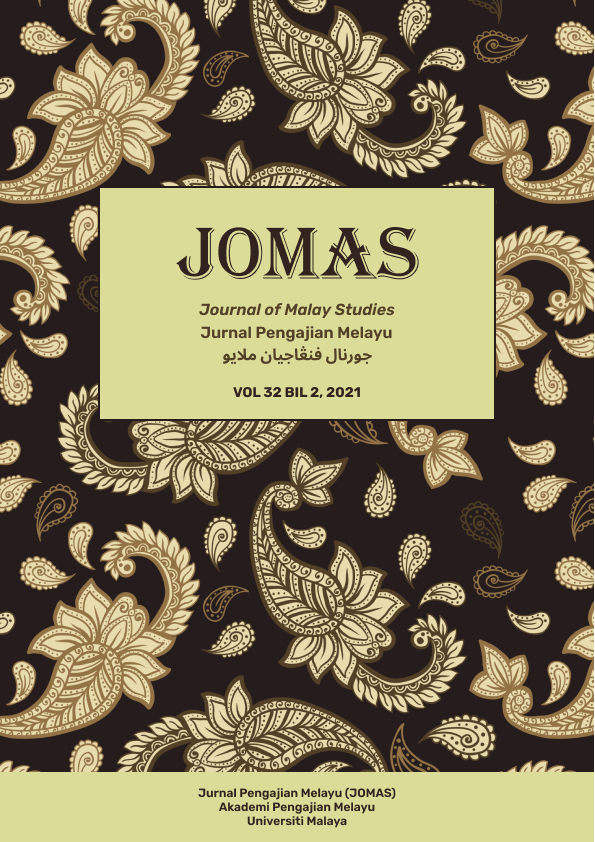PELESTARIAN BAHASA MELAYU SEBAGAI BAHASA IBUNDA DI SINGAPURA PRESERVING THE MALAY LANGUAGE AS A MOTHER TONGUE IN SINGAPORE
Main Article Content
Abstract
Abstract
The latest statistics from the Department of Statistics in Singapore (2020) shows that more Malay families speak English at home. However, this trend is common across all ethnic groups in Singapore. Over the five decades of independence and enforcement of the bilingualism policy, the Malay language, which is the National Language and language commonly spoken in Malay households, is gradually being replaced with English. Other statistics reveal that the Malay language, which is the mother tongue of the majority of the Malays, is used less frequently, even from the early years of socialisation in a Malay household and the exposure of Malay only begins at the preschool level (Maliki, 2020). There is an assumption that, as long as the government maintains the Malay language in the education system through language learning in Singaporean schools, the bilingual policy will continue to maintain the usage of vernacular language. This development is likely to create more issues towards learning and teaching the Malay language as a mother tongue. Hence, this study utilises the approach of the sociology of language to discuss the reasons and impact of the language shift in efforts to preserve the status of the Malay language among the Singapore Malays.
Keywords: teaching and learning of Malay language, sociology of language, language status, language maintenance, language shift, mother tongue.
Abstrak
Dengan data terkini yang menunjukkan lebih banyak keluarga Melayu berbahasa Inggeris di rumah terdapat trend di mana bahasa Melayu sebagai bahasa pertuturan di rumah-rumah orang Melayu juga semakin berkurangan (Department of Statistics, Singapore, p. 2020). Ada anggapan selagi pemerintah mengekalkan penggunaan bahasa Melayu dalam sistem pendidikan melalui pembelajaran bahasa di sekolah-sekolah Singapura, dasar dwibahasa ini sedikit sebanyak akan dapat mengekalkan terus penggunaannya di sekolah-sekolah. Dari data kajian terkini juga terdapat taksiran yang menunjukkan bahasa Melayu semakin tidak digunakan sejak awal dari rumah lagi, maka pendedahan bahasa Melayu hanya bermula di sekolah sahaja (Maliki, p. 2020). Perkembangan ini dijangka lebih banyak masalah pembelajaran dan pengajaran bahasa Melayu sebagai bahasa ibunda. Kertas ini meninjau secara terperinci perubahan ini dan mengambil pendekatan sosiologi bahasa bagi perbincangan tentang sebab dan kesan peralihan bahasa Melayu dalam usaha pelestarian bahasa dalam masyarakat Melayu Singapura.
Kata Kunci: pengajaran dan pembelajaran bahasa Melayu, sosiologi bahasa, status bahasa, peralihan bahasa, pemeliharaan bahasa, bahasa ibunda.

